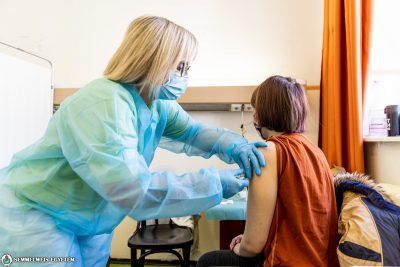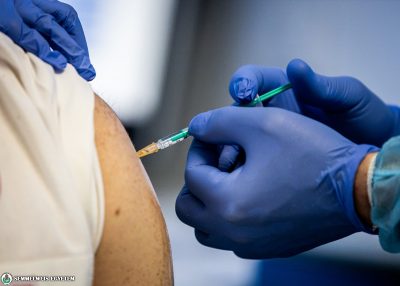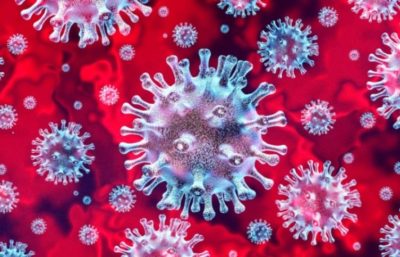“49.2% of 17,787 people chosen by the Hungarian Central Statistical Office have already participated in the nationwide representative screening programme. The project is carried out by the four Hungarian medical universities under the leadership of Semmelweis University.”, said Dr. Béla Merkely, Rector of Semmelweis University and head of the Clinical Epidemiology Analysis Working Group.
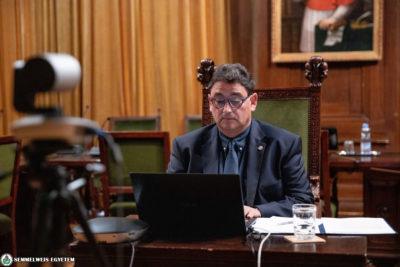 So far, the highest attendance rate has been registered in the area allocated to Semmelweis University (54%), the University of Szeged has completed the screening of 47% of all its allocated participants, attendance rate is 45% in case of the University of Pécs and 41% in case of the University of Debrecen. In order for the screenings to be valid and truly representative of the Hungarian population over the age of 14, a total of 10,500-11,200 people need to participate. Chances are high that the target will be reached as additional 2,113 people have already confirmed their intention to participate, who also have arranged appointments. Only 14.7 percent of those chosen have rejected to participate in the screening programme. The screening tests started on 1st May and will be concluded on 15th May in the evening.
So far, the highest attendance rate has been registered in the area allocated to Semmelweis University (54%), the University of Szeged has completed the screening of 47% of all its allocated participants, attendance rate is 45% in case of the University of Pécs and 41% in case of the University of Debrecen. In order for the screenings to be valid and truly representative of the Hungarian population over the age of 14, a total of 10,500-11,200 people need to participate. Chances are high that the target will be reached as additional 2,113 people have already confirmed their intention to participate, who also have arranged appointments. Only 14.7 percent of those chosen have rejected to participate in the screening programme. The screening tests started on 1st May and will be concluded on 15th May in the evening.
Dr. Béla Merkely presented some preliminary results emphasizing that the final figures after the conclusion of the project may show different results.
“So far 8,276 PCR tests based on nasopharyingeal swabs have been analysed, which produced two positive results. If this were the complete representative sample, the number of active infections in the Hungarian population over 14 years of age not living in nursing homes or other facilities accommodating more than 20 people could be estimated between 243 and 7,230. The number of people already infected by the coronavirus can be detected by an antibody analysis based on a blood test; 9 of the first 1,524 samples were positive. If this were the complete representative sample, it could be estimated that 22,399 to 92,624 people have already been infected.”, Dr. Béla Merkely said.
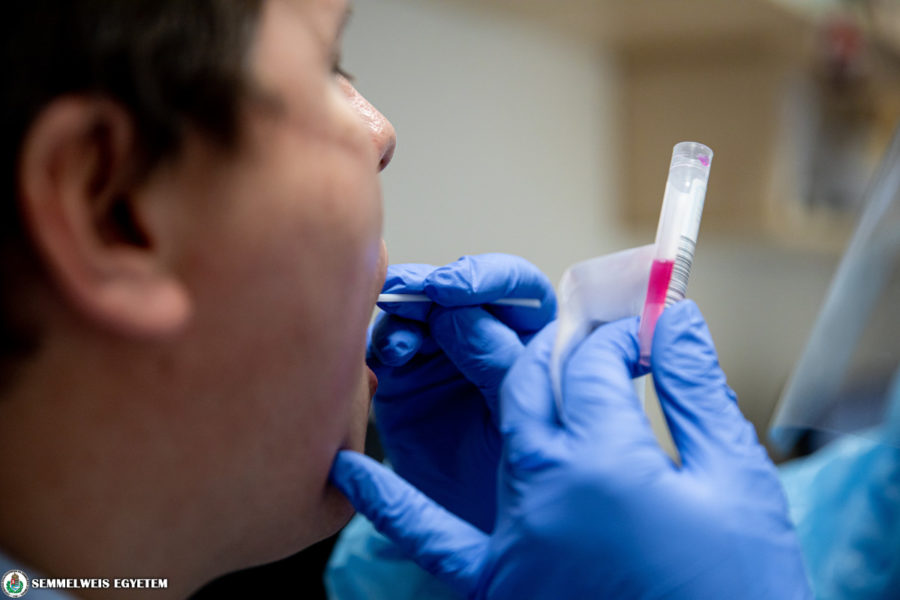 The results of the individual universities were presented by the presidents of the Clinical Centres. At the end of his presentation Dr. Béla Merkely, Rector thanked everyone for their cooperation, including citizens, mayors, notaries, the National Ambulance Service, the police, the staff of the Water Rescue Services of Hungary, the National Public Health Centre for the screening buses and the representatives of the national and local media. He also mentioned that about 1,500 doctors, nurses, assistants, medical students and doctoral students have been involved in the realisation of the screening programme.
The results of the individual universities were presented by the presidents of the Clinical Centres. At the end of his presentation Dr. Béla Merkely, Rector thanked everyone for their cooperation, including citizens, mayors, notaries, the National Ambulance Service, the police, the staff of the Water Rescue Services of Hungary, the National Public Health Centre for the screening buses and the representatives of the national and local media. He also mentioned that about 1,500 doctors, nurses, assistants, medical students and doctoral students have been involved in the realisation of the screening programme.
“The results of the nationwide representative screenings show that the restrictive measures introduced early on have been efficient, no mass infection has occurred and it is likely that herd immunity has not been established. Infections occurring in institutions make up the major part of the cases. The restrictive measures can be relaxed, however under appropriate control. The results of the nationwide screening will be useful in drawing up an accurate picture of the epidemiological situation serving as the basis for mitigation.”, Dr. Béla Merkely said.
The aim of the H-UNCOVER nationwide representative study is to get an accurate picture of the extent and dynamics of the epidemic and the number of people who are or have been infected by the novel coronavirus. 17,778 people over the age of 14 from all over Hungary have been invited by the Hungarian Central Statistical Office to participate in the screening programme, which runs until 15th May 2020. The criterion for inclusion was that the pool of people invited should be representative of all ages and all regions of Hungary. Participation in the testing is voluntary and free of charge but those selected by the Hungarian Central Statistical Office on a representative and random basis have a huge responsibility in the representing not only themselves and their families but 500 other Hungarian citizens. One person has to show up for the test once, which consists of a PCR test, a blood test and a questionnaire.
Major part of the samples are taken by the staff of the four Hungarian medical universities and about half of the examinations are done by Semmelweis University. The staff of the Water Rescue Services of Hungary and the National Ambulance Services also help with the sampling. Positive results are communicated to those affected within 24-48 hours. If someone tests positive, screenings of their contacts are performed as well.
Participation in the screening project is completely safe, the appointments are organised so that there is no need to wait for the tests together with other people in enclosed spaces. It is not possible to volunteer for the representative screening, however there will be similar projects within the framework of the H-UNCOVER research programme.
Pálma Dobozi
Photo (featured image): Attila Kovács – Semmelweis University
Translation: Ágnes Raubinek
